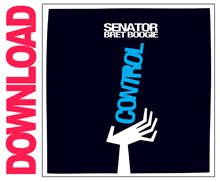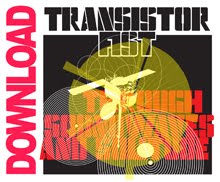
The Dead Emcee Scrolls
Saul Williams, 2006
Saul Williams’ most recent book booms off bookstore shelves with the strength of a Bambaataa 808 pushing air out the back of a Jeep cruising through Bed-Stuy on a sweltering Friday night.
Always swathed in hip-hop, Williams reaches back to his rap roots while stepping up his poetic range in “The Dead Emcee Scrolls.”
Saul Williams, 2006
Saul Williams’ most recent book booms off bookstore shelves with the strength of a Bambaataa 808 pushing air out the back of a Jeep cruising through Bed-Stuy on a sweltering Friday night.
Always swathed in hip-hop, Williams reaches back to his rap roots while stepping up his poetic range in “The Dead Emcee Scrolls.”
He claims to have found “The Lost Teachings of Hip-Hop” in a subway tunnel while checking out graffiti pieces. He found scrolls of aged yellowish paper rolled tightly into a can of spray paint. In deciphering the mystical texts he garnered an understanding of the power of hip-hop to “teach us about ourselves and the universe around us.” He says all his poems have been copied from those texts and that the teachings have led to all his ideas and success. Fiction or fact? Mystery or truth? Poetry or prose? Bullshit? No matter what, this book is refreshingly original.
He simplifies his poetry in this work so much that you question his proficiency, but after getting through a line or two you realize he is eons beyond your conception of him. His newer work is strikingly minimal, while being effectively complex and downright battle-ready.
He simplifies his phrasing and drops all unnecessary words, but plays on words more than ever. Like the title, these poems exercise puns and illicit a deep regard for the original references.
His underlying afro-intellectual style is intact, but he shows a gritty, gutta’ side that will shock some of his “neo-soul, nu-jazz, nouvueau hippie-elitist” audience. In re-acclimating himself with current hip-hop trends, he has invented a unique way to criticize mainstream tendencies and justify the need for a higher hip-hop consciousness.
“Bring me all that is mine, all that has been buried, scattered or lost until history is ours again,” he writes calling for consciousness through reminiscence. He then reflects on the past and aligns it with the present: “Dance, nigger. Paint your faces. Shine your shoes. Pop that collar.”
He pushes boundaries and buttons, creating high art that doesn’t hold itself too high.
The book also contains connected writings that reference the time- and mind-frame of the new work. Several familiar pieces appear, such as “Sha Clack Clack,” which was Saul’s character’s triumphant spoken piece in the film, “Slam.” Also included is “OM,” which was presented over an intergalactic beat on the heralded Lyricist’s Lounge CD some years ago.
-Bret Duchen





No comments:
Post a Comment